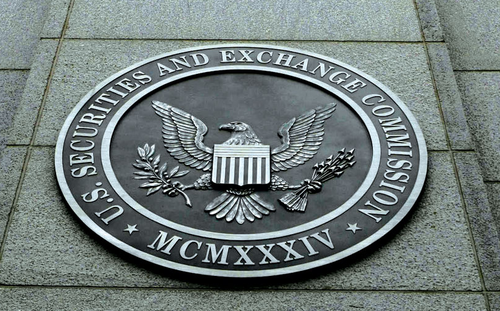
A new SEC rule is being rolled out wherein executives of firms with costly accounting errors could find their personal bonuses on the hook. The Securities and Exchange Commission approved the rule on Wednesday, the Wall Street Journal reported.
The rule, "required by the 2010 Dodd-Frank Act to discourage fraud and accounting mischief", was approved by a 3-2 vote of commissioners at a meeting this week. Democrats approved the rule while both Republicans dissented, the report says.
The rule had been initially proposed in 2015, but was then shuttered under the Trump administration. Democratic SEC Chairman Gary Gensler has said that it will "strengthen investor confidence in corporate reporting, as well as the accountability of managers," the Journal reported.
Gensler stated: “Corporate executives often are paid based on the performance of the companies they lead, with factors that may include revenue and business profits."
He continued: "If the company makes a material error in preparing the financial statements required under the securities laws, however, then an executive may receive compensation for reaching a milestone that in reality was never hit.”
The original rule used to apply only to firms that found major errors and had to restate financials. The newer version of the rule is broader and can still affect executive bonuses even with smaller, recent accounting errors.
“This may result in salary increases, rather than compensation mechanisms tied to financial-reporting measures,” Republican SEC Commissioner Mark Uyeda said. He also argued that the rule “may ultimately weaken alignment of interests between shareholders and management.”
The U.S. Chamber of Commerce and Business Roundtable along with GOP lawmakers and some SEC commissioners had spoken out against the rule.
Not unlike some Sarbanes-Oxley attestations, firms will now have to include check boxes on the front page of their annual reports to confirm that an error correction or clawback analysis had been conducted before filings are submitted.
A new SEC rule is being rolled out wherein executives of firms with costly accounting errors could find their personal bonuses on the hook. The Securities and Exchange Commission approved the rule on Wednesday, the Wall Street Journal reported.
The rule, “required by the 2010 Dodd-Frank Act to discourage fraud and accounting mischief”, was approved by a 3-2 vote of commissioners at a meeting this week. Democrats approved the rule while both Republicans dissented, the report says.
The rule had been initially proposed in 2015, but was then shuttered under the Trump administration. Democratic SEC Chairman Gary Gensler has said that it will “strengthen investor confidence in corporate reporting, as well as the accountability of managers,” the Journal reported.
Gensler stated: “Corporate executives often are paid based on the performance of the companies they lead, with factors that may include revenue and business profits.”
He continued: “If the company makes a material error in preparing the financial statements required under the securities laws, however, then an executive may receive compensation for reaching a milestone that in reality was never hit.”
The original rule used to apply only to firms that found major errors and had to restate financials. The newer version of the rule is broader and can still affect executive bonuses even with smaller, recent accounting errors.
“This may result in salary increases, rather than compensation mechanisms tied to financial-reporting measures,” Republican SEC Commissioner Mark Uyeda said. He also argued that the rule “may ultimately weaken alignment of interests between shareholders and management.”
The U.S. Chamber of Commerce and Business Roundtable along with GOP lawmakers and some SEC commissioners had spoken out against the rule.
Not unlike some Sarbanes-Oxley attestations, firms will now have to include check boxes on the front page of their annual reports to confirm that an error correction or clawback analysis had been conducted before filings are submitted.






